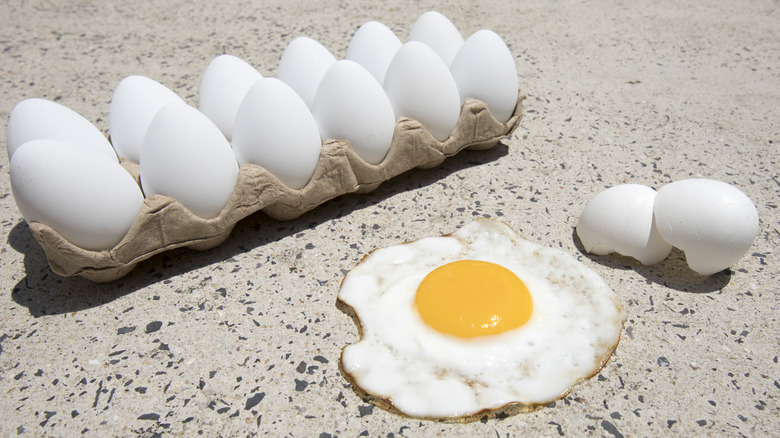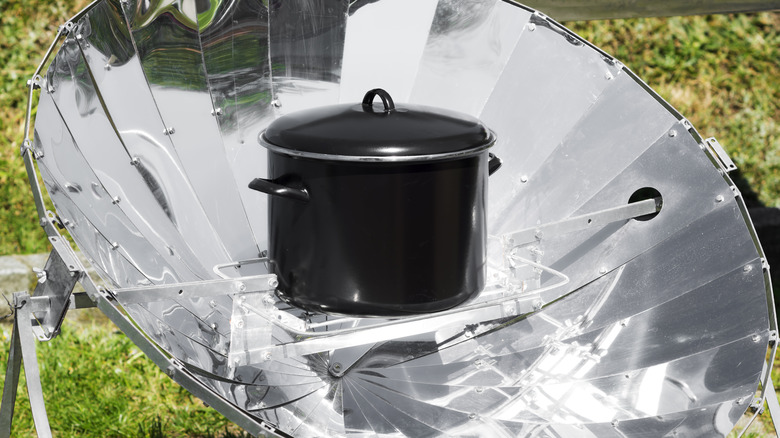Is It Possible To Cook Food With The Sun?
As temperatures reach staggering heights, leaving the house can seem like stepping into a piping hot oven. Every summer, people debate whether or not it's possible to fry an egg on the sidewalk — though Smithsonian Magazine explains that eggs won't cook at even the hottest outdoor temperatures. However, the idea of using extreme temperatures to prepare food has a way of capturing our imaginations.
Recently, one viral video promised to do just that. Eating Well reports that Tiktoker @brunchwithbabs recently shared a recipe for "sun pasta" with her nearly two million followers. In the video, the Tiktoker recommended setting a bowl of diced tomatoes, parsley, basil, lemon juice, olive oil, garlic, salt, and pepper in the sun for five hours to create a unique sun-cooked tomato sauce. However, commenters were concerned about the safety of the recipe, with some noting that leaving food in the sun could pose potential health risks.
Their concern is backed by the U.S. Department of Agriculture. Experts warn that food should never be left at room temperature for more than two hours since bacteria grow quickest between 40°F and 140°F, referred to as the "danger zone." At over 90ºF, anything left out for over an hour is considered unsafe. To ensure safety, food should be cooked at temperatures of least 165ºF — significantly hotter than even the hottest summer day.
You need the right tools
If you're really determined to cook with the sun, consider using a solar cooker. The University of Florida states that solar cookers offer a viable alternative to an oven or open fire, whether you're camping, experiencing a blackout, or simply experimenting with harnessing solar power. Solar cookers, which use reflective surfaces to target the sun's energy, can reach 200ºF to 300ºF — hot enough to safely cook food.
Plus, CNN reports that solar cookers could be a boon for the 2.6 billion people who cook over open fires, a practice that significantly contributes to carbon emissions and deforestation. Advocates say that these devices are more efficient than open fires and better for both the environment and public health. In India, where roughly 81% of rural communities rely on polluting cooking fuels, nonprofits are working to provide families with solar cookers — an especially promising solution in a country that receives an estimated 300 sunny days a year.
However, solar cookers aren't without risks. According to DoItYourself.com, you should keep a thermometer handy when cooking with such a device to ensure that your food has reached a safe temperature. In addition, use caution when operating the cooker, and wear sunglasses to help protect your eyes from the glare. For optimal results, prepare your food between 11:00 a.m. and 3:00 p.m. on a bright, sunny day, and cook it twice as long as you would in a traditional oven.

